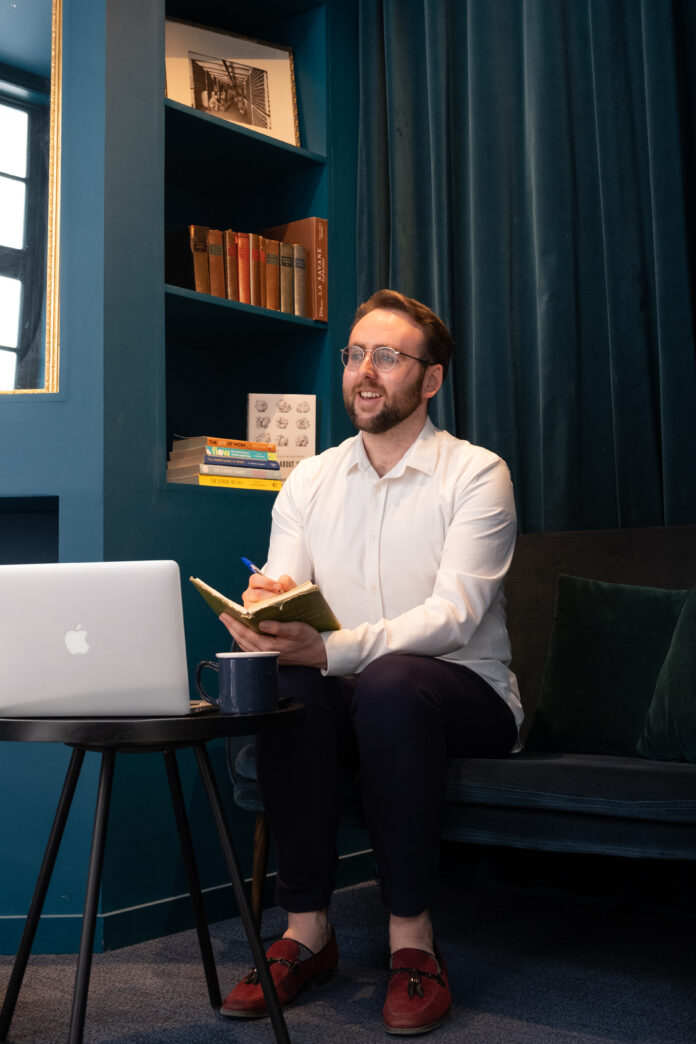Robbie Stakelum is a life coach, trainer and yoga teacher who writes about how to combat your indecision and much else.
We all face indecision at different moments in our life. When you’re in your early 20s and fresh out of college you feel liberated to make impulsive decisions, dramatic career changes – returning to education or moving to another country don’t feel like a big deal. However, the more successful and secure you become in life, the harder it becomes to make important decisions. You’d imagine that the inverse would be true, that the more life experience you possess the easier it would be to make decisions. But as we get older, the stakes get higher and the implications of a bad decision are greater as we perceive a greater risk.
“The more successful and secure you become in life, the harder it becomes to make important decisions”
For example, when you are accomplished in your career, recognised for your competence and professionalism, respected and take home a good salary, there can be more at stake in a career change, particularly if you have a spouse, children or a mortgage to consider. In both my own experience and working with my coaching clients, it’s clear that we’re never really taught the skills for making informed or good decisions. Pause for a moment and think, how do you make important decisions?
We don’t have a framework or an equation for decision making. Sometimes we make lists. Sometimes things ‘just’ happen or fall into place. A promotion comes your way at the right time. You meet your partner and it feels like the right person. Buying a home makes financial sense. Going back to education is the right investment for you at the right time. Good decision making is really a case of trial and error over a lifetime, you develop an intuition for what is the right or wrong decision at a given junction in your life. But what happens when those high stakes blur your gut instinct?
The root of indecision
Indecision is rooted in an inner conflict. Your mind tells you one thing, while your heart says the other. There is a rational choice that makes sense on paper, but there’s also an emotional choice that ‘feels’ right. The most common example I see of this in my clients is the desire to change career when you’ve become bored at work and no longer find it fulfilling or motivating, but the financial insecurity of a career shift is scary. This tension is natural.
“Indecision is rooted in an inner conflict. Your mind tells you one thing, while your heart says the other”
But indecision worsens when you play the situation and different options over and over in your head. The more you think about it, the more entrenched it becomes. The more you ruminate the more negative and extreme your perspective can become and its harder to reach any outcome.
Framing the decision
How you approach, or frame, a decision will determine how you respond or react to it. To help clients snap out of negative thought patterns that are leaving them paralyzed, unable to make a decision, I use this simple but powerful tool.
Rationally assess how reversible or consequential the decision is. When we get trapped in the negative and extreme thinking patterns, we tend to underestimate how reversible the decision is while over-exaggerating its consequences. Rumination leads to black and white thinking, which is not reflective of reality, decisions are rarely final, and the consequences can either be mitigated and planned for, or sometimes we just exaggerate them in our head.
My suggestion is to do the following:
– Grab a pen and paper
– Draw out a simple graph. The x axis represents how consequential or inconsequential the decision is, while the y axis represents how reversible or irreversible the decision is.
– Take a moment to yourself. Usually, I would guide my clients through some breathwork or meditation.
– Consider the decision you are facing, and plot where you are on the intersection on how consequential or reversible the decision is.
Apart from having a child, few decisions are both extremely consequential and irreversible. When most people approach this tool at first, they tend to think the decision is on the extreme end of both spectrums. This is natural and happens when we get into those extreme and negative thinking patterns.
“Few decisions are both extremely consequential and irreversible”
In reality, a lot of decisions are reversible. Changing careers, moving countries, buying a house or starting a business may all be consequential, but they are also reversible if they don’t work out. Remembering that a decision isn’t for life, can be very empowering. It may come with a bruised ego or hurt your pride, but it doesn’t mean you have to stick with the decision.
Similarly, rationalizing how consequential the decision really is can break negative thought patterns. For example, changing career or going back to education can have an impact on your income, but review how consequential that is. What can you do to prevent those consequences? What new behaviours can you adapt? What resources can you tap into? You’d be surprised, when you review the situation rationally, that the consequences may seem less overwhelming.
This simple but effective self-coaching tool has supported many of my clients to breakthrough their indecision and view their situation from a new perspective and identify their limiting beliefs that are holding them back.
If indecision is something you constantly struggle with, there are some additional resources that could help you. One cause of poor decision making is low self-esteem. For more on how to address this please go to my website to find out more. Likewise, indecision can happen when you are out of touch with yourself and tuning into your intuition and grounding can be a supportive tool to build clarity around the correct decision for you, again, I address how this can be achieved on my site.
It’s a complex web we weave, but if you want to untangle your thoughts and make better decisions, Together recommends considering a life coach to help you. Sometimes it’s easier to take a step back and work with a neutral outsider to help us realise our dreams.
Want to work with Robbie? You can find out more about his coaching practice, set up a free discovery call or find out if coaching is for you by checking out www.robbiestakelum.com or get in touch direct with Robbie by email via robbie@robbiestakelum.com







